Your breath hangs in the frigid air as you step out of the car. The drive to the campground was uneventful. The bridge over the river wasn’t slick with ice like you expected. You could have stayed at the campground near the entrance to the park, but that is on the other side of the lake and farther away from the area you hope to explore.
No one else is camping because of the big winter storm the day before. With no other severe weather in the forecast, you asked, even begged, your friends to come, but they didn’t want to camp in the cold. They tried to convince you to stay with them at home in the warmth, but you decided to camp alone. They have all your information in case there is trouble. You only plan to stay two nights. It will be fine, you told them.
The silence is calming. No electrical noise, no cars or machinery, no people. Just you, the wind in the trees, and a few cold-loving birds. You can even hear the distant sound of the river, however faint. You love this campground. It is far away from civilization but not completely remote.
During the summer, the sites fill up every night. One must book their spot months in advance. The popularity is due to the massive amount of summer amenities the campground provides. There is a lake nearby with stables and a rental cabin for water sports, hiking and fishing supplies, and other activities, like beach volleyball and horseshoes. The stables hold a herd of trail horses and some calmer horses for riding lessons in the summer. The horses have another home for the rest of the year. There is so much to do that families come here in droves during the warm months.
Hiking is the biggest draw of the area. The most travelled paths end at a natural cave. A hundred and fifty years ago, outlaws used the cave as a hideout. The cave itself isn’t very deep, but with the surrounding forest, supplies an excellent place to hide out for days or weeks while avoiding the law. An intricate path system winds through the woods to the cave and all around the lake and river nearby. It takes weeks to hike them all. When you were younger, your parents brought you here a few times each summer. They said you’d get through all the paths by the time you grew up. This never really happened as you always wanted to go to the cave, but spending time here never got boring.
In the winter, the park is empty. Wintry weather is unfamiliar to the people of your state, and they avoid leaving their homes when the rare winter weather hits. That massive storm yesterday left a thin layer of snow on the ground. You imagine that people from more northern states would scoff at your fear of this light dusting, but it is better that people avoid going places. No one around here knows how to drive in the snow, even a tiny bit of it.
You revel in the empty campground as you began pulling your gear our of your little Honda Civic. The car isn’t the best for driving in the snow, but you have more experience than most locals. You attended the University of Michigan for school and this trusty car made it through four winters before you graduated and came running back to warmer weather.
After you prepare camp, you set off for your first hike. You want to see the cave in winter. Like most others, your parents avoided camping in the cold, so this is like hiking a new area. Trudging through the woods, you notice that you are the first one disturbing the snow. As you suspected, no one has been here since the storm. You climb the small rocky hills for half an hour before reaching the cave.
Granite rocks and boulders dot the surrounding forested hills between the leafless trees. The cave stands out as different from the landscape around it because a much larger outcropping of boulders surrounds it. From a distance, it looks like the hill behind it collapsed and left a jagged cliff face.
At the base of the cliff is a carved out hollow. Since the outlaw days, people still use this hollow as a campsite, even though the forest service prohibits camping in and around the cave. The hollow blocks the fire light from view and protects against the elements. To make the place more appealing, there is an opening at the back of the hollow into a series of tunnels. The tunnels are short overall but intertwine with one another and become confusing if one loses their bearings. To keep people from getting lost, the park placed occasional wayfinding signs inside to get people out when they did lose their way.
You roam the cave for a little while. There are remnants of a campfire in the hollow and a lot of trash in the cave. When you leave, you take a bag of trash out and will take more before the end of the trip. The selfishness of others is no longer surprising, but you still try to make things right.
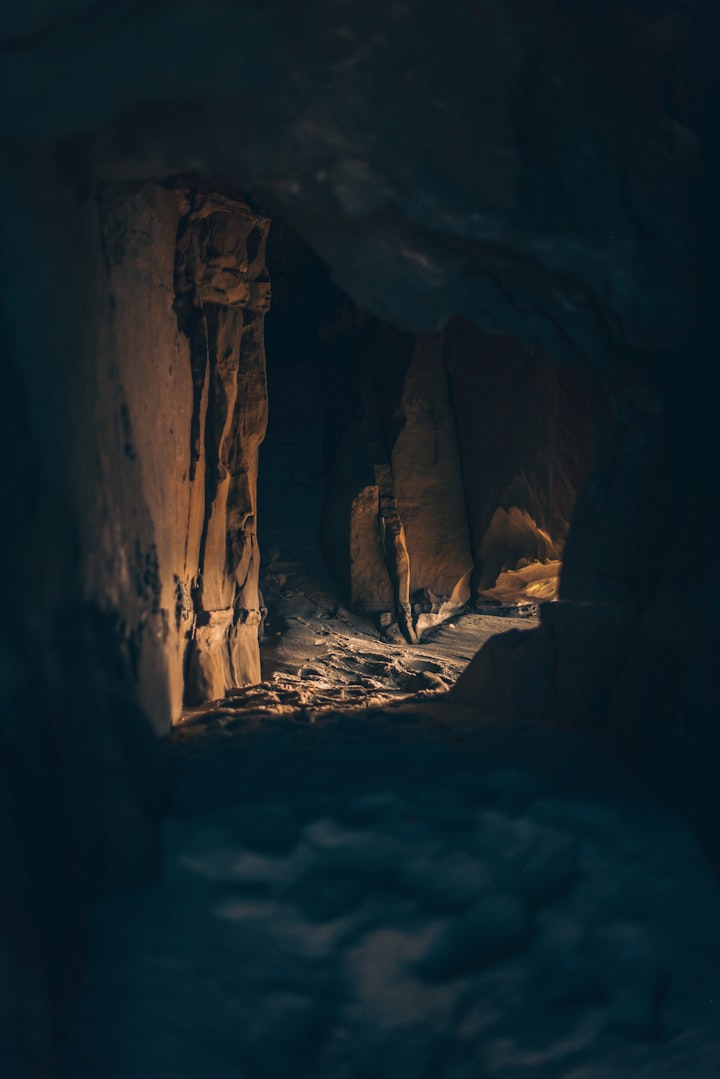
After making it back to camp, you make lunch and then head out to the lake, which is remarkably close. You take fishing gear in hopes that you can have fresh fish for dinner tonight. The lake isn’t frozen. A little ice hugs the edge of the lake and surrounds the taller plants that stick out of the water.
A small dock juts out into the lake, and you go to the end. Peering across the water, you see only a deer on the other side of the lake drinking. Behind it, another deer stares at you as you drop your baited hook into the water.
An hour later, you walk back to camp with four bluegills to clean and fix for dinner. Bluegill is your favorite fish, not because they are better tasting than other fish, but because they remind you of your grandfather and fishing near his house by another lake as a child. You loved waking up early with him to fish. He would clean your catch in his boat house and your grandmother would bread and fry the fish for dinner accompanied by fresh vegetables from their garden. Those were some of the best meals you ever ate.
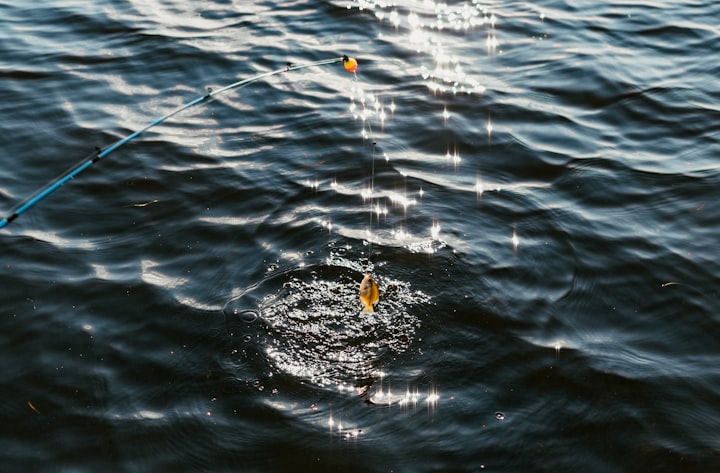
After eating your fish and canned veggies, you clean up the camp. There aren’t bears in the area, but other wildlife will come after any food you might leave out. You put the trash in the campground bins a little way down the road and then walk back to the campsite. You put your cooking gear and other food items back in the car and settle down next to the fire until you are ready for bed. You plan to hike most of the next day.
Darkness encompasses you when you wake up. You aren’t certain what woke you, but after a moment you hear it. Something crunching in the snow, but so light that it barely registers in your ears. At first, you think it is an animal, a deer or racoon. Then, you hear it rummaging through your belongings outside. While you aren’t worried about bears, cougars and bobcats are common in the area and will get into gear. You begin to worry, but whatever it is continues out of the camp. Eventually, you fall asleep again.
The next morning, everything seems disconcertingly undisturbed. You were certain the animal went through your belongings, but everything is exactly the way you left it. Even more unsettling, there are no footprints in the snow. After a while, you decide the wind must have blown snow into the footprints and the animal, because it must have been an animal, was just nosing your gear. It didn’t get into anything.
You hike all day, taking new routes your parents never got around to taking. At dusk, you return to the campsite. Exhausted, but hungry, you rebuild the fire and cook a simple dinner of hotdogs and more canned vegetables. Eating in the circle of light from the campfire, you look out into the darkness and feel uneasy. What if it wasn’t an animal the night before? You hadn’t seen any tracks and didn’t think anyone else was around, but it didn’t stop your mind from worrying about others in the woods. The hairs on your neck stand on end and you feel like someone is watching you from everywhere in the woods.
You hurriedly finish your food and clean up. Instead of walking down the road to dispose of the garbage, you put it in the car and get into the tent. You know you’re being irrational. No one is out there, and if they were, your tent would not protect you one iota. After lying in the dark listening to the wind in the trees for what seems like hours, you finally fall asleep.
You wake up again to the rummaging sound. You nearly yell to scare the animal away when a tiny cough stops you cold. There is a person in your camp. You grip your flashlight in your fist, ready to use it to blind someone or as a weapon to ward off an attack. Your knife is in your pack outside, and you curse yourself for leaving it on the table. Like the night before, the person doesn’t stay long and moves off into the forest. You decide to stay in your tent and check the bag in the morning for missing items. Clearly, the person isn’t trying to get at you and you’re too scared to confront them in the dark without a plan. Besides, you’re leaving in the morning and want to avoid a confrontation if you can. A phone call to the ranger in the morning will suffice for dealing with the situation.
The sunlight wakes you up in the morning. You don’t remember falling back to sleep. You open your tent to see fresh snowfall, and not just a little snow like the storm the other day, but a few feet are now burying your tent, the table, and your car. When you open the flap more, snow pours in. You push as much of it out as you can and begin clearing a path to your pack. Looking at the car, you realize you aren’t leaving today and if the temperatures don’t rise, it may be many days. You curse your reliable little sedan for not being a four-wheel drive.
Forgetting the nighttime visitor, you start to plan for the next couple of days. There aren’t phone signals out here, but your friends know which campground you are at and will alert the authorities when you don’t make it back home this afternoon. Even if no one shows up to help, the temperature will rise this afternoon and melt most of the snow. As much as you expect a rescue or to be able to leave soon, you don’t want to be unprepared.
You take stock of the situation. There is food for a week without fishing and you can still do as much of that as you like if the lake doesn’t freeze. You still plan to conserve food and water. It would be a shame to have this freeze last longer than you planned food for and end up starving if you can’t manage to catch any fish.
Since food isn’t an immediate concern, you start clearing the campsite of snow. First, you clean out the firepit and look for dry wood to light a fire. The warmth should help melt the snow in the area. Then, you knock all the snow from the tent and clear the area near the door. Next, you clear a wide path to the car. You move the snow from the top and open all the doors to make sure they aren’t frozen shut.
Taking the food, you go back to the table and clear it off as well. You finally notice your pack and remember the nightly visitor. You check the contents. Still nothing is amiss. Nothing missing. Nothing damaged. Everything in the same place you packed it in last. You wonder what the visitor is doing when he comes to the campsite.
There is plenty of daylight left so you clear a path to the lake. You’re glad to live in an area where lakes rarely freeze and even this larger storm won’t do the trick. You fish and manage to catch a few hungry crappies. They won’t give you much meat because they’re small, but it will save a little bit of the canned food if things get dire.
You collect a good amount of wood and stash it under the table to help keep it dry. The fire has died down while you were fishing, and you build it back up to make dinner and continue to warm the area. Unfortunately, the temperature never went up during the day and as you watch the sun sinking towards the horizon, you wonder how long it will take before the snow melts.
By the time dinner is ready, the space feels almost cozy with warmth. You eat and look at your pack. You worry the visitor will come again but doubt it. The snow is deep and difficult to manage in the daytime, at night it will be worse. The only path to and from your camp is the one you made to the lake to fish.
That night you hear him again. More coughing. It’s getting worse. You nearly confront him this time, but he might attack you. You really don’t want to run away in the snowy woods at night. It is a recipe for a cold death. You hear a zipper and wonder if he’s getting in your pack this time. More rustling and then he leaves the camp. You wait a while and sneak quietly out of your tent.
This time, there is a sign of your visitor. He disturbed the pack this time. It seems bigger than before. You open it to look inside, while trying to keep an eye out for the visitor in case he comes back. There is a blanket inside made of animal skins and some food. There are some berries that were foraged from the woods and cooked fish. Your visitor seems to know you need help. You take the pack to the tent because you might need it and won’t want to trek through snow to get it in the morning.
Before getting back in the tent for the night, you look around the edge of the campsite with your flashlight to see from which way the visitor came or went. The only path in the snow is your own to the lake. In the morning, you will check to see if there are any paths off your own. Maybe you missed other paths before because he was using yours until he was away from the camp.
You can’t sleep well. Your dreams are full of monsters and bad people jumping out of the dark at you. You wake again in the middle of the night to the sound of wind in the trees and look outside enough to know it is snowing again and hard. You zip the tent and snuggle as deep as you can in the sleeping bag with your new blanket hoping the storm won’t last long. Your sleeping bag is warm enough for the cold, but the blanket seems to help trap a lot more heat in and you drift off as you warm up.
By noon, the storm dies down, but now the snow in the camp is a few feet deep again and drifted against the door of your tent. You dress as warmly as possible. Pushing against the snow drift, you unzip the door and push outward to prevent as much snow as possible from falling inside. You are marginally successful. You trudge through the snow to your car, realizing how deep the snow is in the surrounding forest. Your efforts the day before helped reduce the accumulation of snow in the campsite.
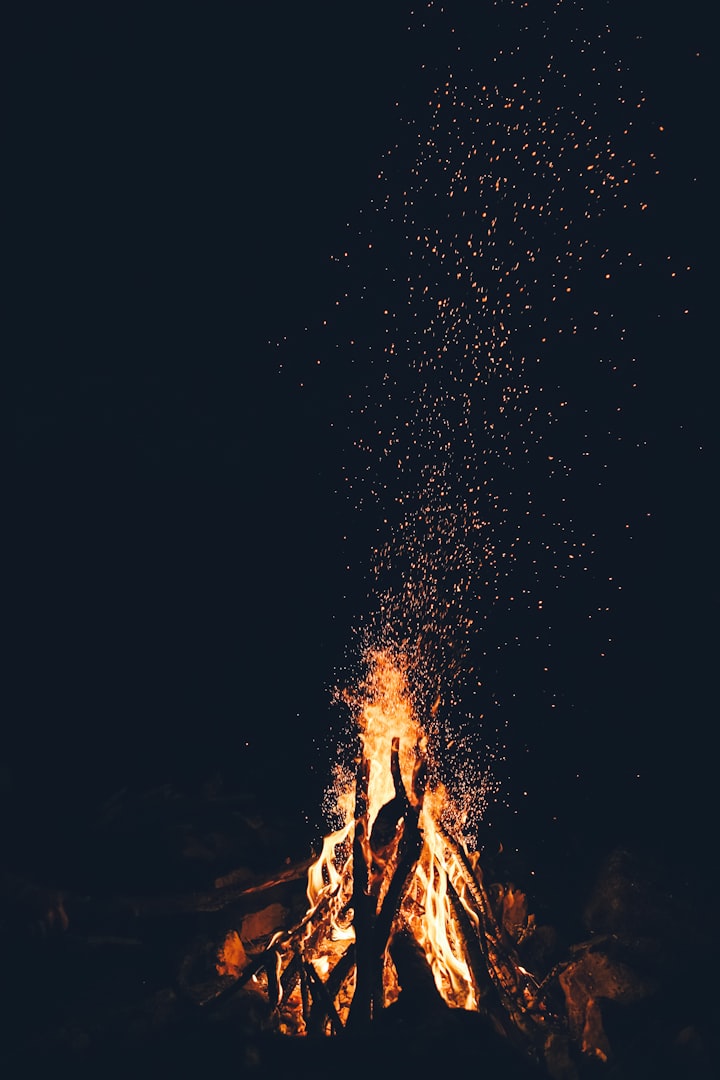
The amount of snowfall is shocking. The state hasn’t had this much snow in years, if ever. In fact, you could add up the last ten years of snowfall and it would match the amount that’s fallen in the last week. You worry you may need to stay for a long time if no one shows up to help you out.
The doors of your car are frozen shut. You can’t get in to get at your food or any other supplies inside, including a cooking pot that you would have used to heat water to unfreeze your doors with. You nearly panic because your fishing gear is in there too. Then, you remember the food the visitor left in your pack. You breathe a sigh of relief.
Your next plan is to get a fire going. Luckily, your matches are in a waterproof container in the pack. The wood under the table is thankfully dry, and you get a fire lit. Then you begin to clear snow from the campsite to try and keep any future snow from piling you in deeper. You clear around the car as well, avoiding piling up snow towards the road. The car is red, and you hope someone might see it from above or the road.
You eat small bits of the food as you get hungry but try to save as much as possible. You aren’t certain if you’ll be able to get into the car or be able fish if the lake is too frozen.
With that in mind, you begin to forge a path to the lake. It takes triple the usual time to get there, but you’re happy to see the water only has a thin layer of ice near the dock. You can cast past the ice if you can get your fishing gear.
By now, you’re well into the afternoon and decide to try and unfreeze the car door. You will struggle to eat if you can’t get in there. You make it back to camp and rebuild your fire. You try to get a bigger fire this time in hopes someone will be looking for you and that you can warm the campsite. The snow didn’t show any signs of melting today in the surrounding woods and so you don’t hold out hope of being able to leave any time soon. You wonder, not for the first time, why no one has come to find you.
The car doors are still stuck. You look around the camp for something to heat water in but can’t find anything useful. You decide to try and use a burning stick and cross your fingers that you won’t damage the car in the process. You grab a long, thick branch and put on end in the fire. It is damp and you wait for the fire to dry it out before the end catches. Eventually, you have a flaming stick in your hand and make your way to the car. You hope it will be hot enough to melt the ice and allow you to open the door. You move the flame along the edge of the door and watch as the ice melts. After a few minutes, you try to open the door. Nothing happens. You go back to the fire because the fire on the branch has gone out. A few minutes later, you’re back at the car. This time, when you try the door, you hear the ice cracking and after a big tug on the handle the door pops open.
You are happy you’ll be able to eat. Risking animal visitors, you take all the food out of the car and store it in the tent. You know this is risky, but you don’t want a repeat of today. You think about trying to fish, but the sun is setting fast. You will go early in the morning.
That night, the visitor’s cough is worse, but you aren’t as scared as before. Since he left you food and a blanket, you feel he isn’t a threat. You peek out to get your first look at the person who keeps visiting without announcing himself. There is enough light from the moon and stars tonight to see him clearly and you startle at his appearance. He isn’t very tall and is wearing an odd assortment of clothes made of animal skins. He’s carrying a spear but not in a threatening manner. He’s got his back to you and is looking at the table so you can’t see his face, but you think he has a beard. You have your pack in the tent with you, so he isn’t rummaging around as much as before. You see him set something down on the table and begin to walk off towards the cave. You consider following him but decide against it because you aren’t dressed for the cold right now. You might tomorrow night since you seem to be here for the long haul.
In the morning, you find two fish lying on the table. They have frozen overnight, so you think they will be fine to eat once you prepare and cook them. After making your fire, you set the fish on a rock nearby to thaw and begin to prepare for the day. After eating, you head to the lake to get a few more fish. Then, you plan to go to the cave. Maybe you can find the man and thank him for his help. You can find some edible berries along the way as well. You’re happy it didn’t snow more, and the temperature seems to be rising this morning. You hope the snow will begin to melt and let you go home.
You have a good morning fishing and have extra to take to the man if he is there. If not, you’ll try to freeze the extra fish to eat later. You get some lunch and then head to the cave with a packet of fish. It takes a while to get to the cave because there is no path through the snow. You wonder how this could be since you saw the man go in this direction. When you get to the cave, you realize no one has been here since you were here last. Still, you enter the cave and look around. The same trash and indications of recent occupation are here, but they haven’t changed. You pack up a small bag of trash and head back to camp.
The temperatures keep rising today and you begin to hope to get out of the campsite in the next day or two. You prep and pack the fish in snow in your cooler to freeze overnight and cook some for yourself for dinner. That night, you sleep in your clothes with plans to confront the visitor if he comes again. You have the fish ready to give to him as well. You try to stay awake, but doze in the tent. You’re awoken by horrible coughing outside. You quietly exit the tent. The man bends over the table in an uncontrollable coughing fit.
You clear your throat and startle him. He turns to face you and raises his spear slightly. Then he drops it to his side and resumes his coughing fit. He has a long beard and rough looking skin that has been exposed to the elements for a long time. After a moment he regains control.
You try to thank him, but he looks past you with a glazed look in his eye, turns, and walks out of the camp. You try to follow him, but it’s dark still and he’s travelling faster than you would have expected. He doesn’t cough anymore that you can hear. You also notice that there are no footprints left behind him. This gives you the chills, which are made worse by a barn owl swooping overhead screeching.

The man’s general direction is the cave. When you arrive, there is a small fire at the entrance, and you see the man lying on the ground with a blanket wrapped around him. As you approach, you hear him gasping and wheezing. Suddenly, he goes rigid. His hands grasp at the dirt and his chest. You rush forward to try to help somehow, but the spasm is over almost as fast as it came on. He’s collapsed against the earth now and doesn’t seem to be breathing. As you get to him, you barely notice the fire isn’t giving off any heat. As you kneel next to the man to take his pulse, he and the fire disappear, leaving you in starlit darkness.
The ground in front of you is now empty and the night is dark. You try to look around some, but stupidly didn’t bring your flashlight when you followed the man out of your camp. You don’t see anything or anyone and don’t hear sounds other than the whisper of wind in the trees. You make your way back to the camp and spend a fitful night in your tent.
The next morning you walk out of your tent to see the snow has nearly melted. You can drive out of here today. You pack up everything and are almost ready to leave when you’re hit with a sense of guilt about the previous night. What if the man needs your help still? You walk back out to the cave and find nothing again. Maybe it was a dream, but you’re pretty sure it wasn’t. You see your own tracks in the snow that lingers in the hill’s shade. You were here, but where was the man? Did he really disappear?
You get back to camp and start up your car. As you approach the bridge, you realize something is wrong and stop. The bridge is out. A tree fell across it and collapsed the middle. A crew is on the other side. They see you and smile and wave. They are excited to see you. They knew you were on the other side but haven’t had a good opportunity to get across. Your friends alerted the authorities to your absence a couple of days prior. The crew had been working on a way across the creek but kept running into hurdles.
Within an hour, you can get across the bridge but without your car. You will get that back once they repair the bridge. Your friends have come to greet you at the ranger station down the road. You’re sipping hot cocoa with them when you notice a board in the station with a lot of old pictures posted of the people who used the caves back in the day for shelter. You see a familiar face among the pictures. Tom Jessup was a train robber who often used the cave to hide out. He died there one winter, probably of pneumonia. Tom Jessup is the same man you saw at your camp. In his picture, he’s even wearing an animal skin coat like the one you saw on your visitor the night before.
Author's Note: This short story was written for Santa's Secret Pen 2021. A prompt was provided by another participant. Prompt: A camping trip in the middle of winter was already a questionable idea, but then you hear a noise outside the tent…


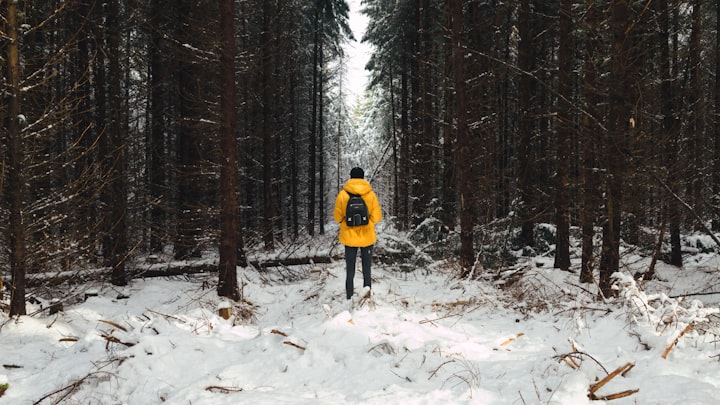
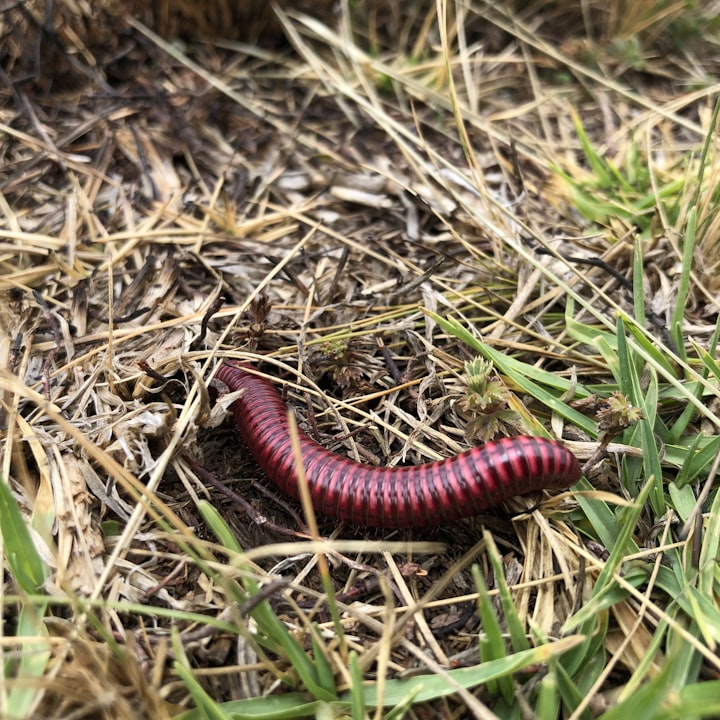

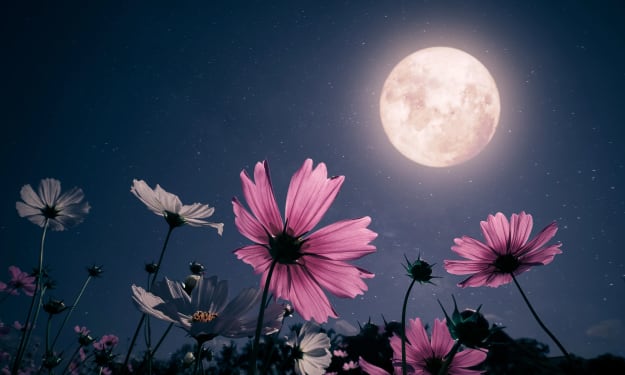

Comments
There are no comments for this story
Be the first to respond and start the conversation.